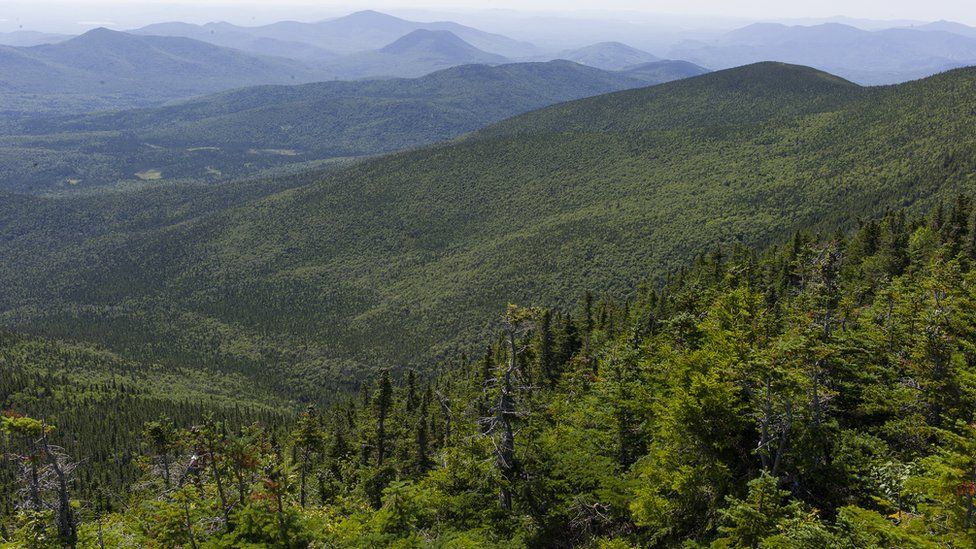ARTICLE AD BOX
 Image source, Andrew Lichtenstein/Getty
Image source, Andrew Lichtenstein/Getty
The study showed that leaves stayed on trees about 15% longer than they did a century ago
Global warming is changing the way trees grow, new research suggests.
Researchers studying hardwoods in northwest Ohio say a century of warming has extended their annual growing season by a month on average.
The scientists from Ohio State University compared recent observations to detailed notes a local farmer began taking in the 19th Century.
They say the research has implications for how well different types of trees will cope with future climate change.
Between 1883 and 1912, farmer Thomas Mikesell made meticulous notes on local tree growth, precipitation and temperature in his home town of Wauseon, Ohio.
Our planet has warmed by 1.1C since the industrial revolution about 200 years ago. With most of that occurring in recent decades, researchers say Mikesell's observations are a near unique pre-warming dataset to compare with modern times.
Lead author Prof Kellen Calinger-Yoak travelled to Wauseon herself in Spring and Autumn between 2010 and 2014, to monitor seven different species of hardwood.
She said that leaves stayed on trees about 15% longer than they did in Mikesell's day.
"Things are not the way they used to be - they are profoundly different," said Prof Calinger-Yoak. "An entire month of growing season extension is huge when we're talking about a pretty short period of time for those changes to be expressed."
Species responded to warmer temperatures in different ways - most kept their leaf colour longer into Autumn but some budded early.
The implications of the longer growing period are unknown.
Trees are vital in sucking planet-warming carbon dioxide out of the atmosphere, and the researchers said a longer growing period probably meant they did more of that. But they warned that higher, fluctuating temperatures may also stress trees in ways so far unknown.
Species reacted differently to higher temperatures. Prof Calinger-Yoak said that suggested more species-specific research was needed with regard to the role of tree-planting in limiting climate change.
We are invested in making the bad effects of global warming less horrible, and are wondering how much benefit we can get from trees we already have and from potentially planting more trees - that's really important," she said.
"When we're thinking about a relatively low-cost mitigation strategy, planting a whole bunch of trees that suck CO2 out of the air is a really good strategy, but to promote those activities you also have to have evidence of the level of benefit you'd derive from it."

 1 year ago
38
1 year ago
38








 English (US) ·
English (US) ·